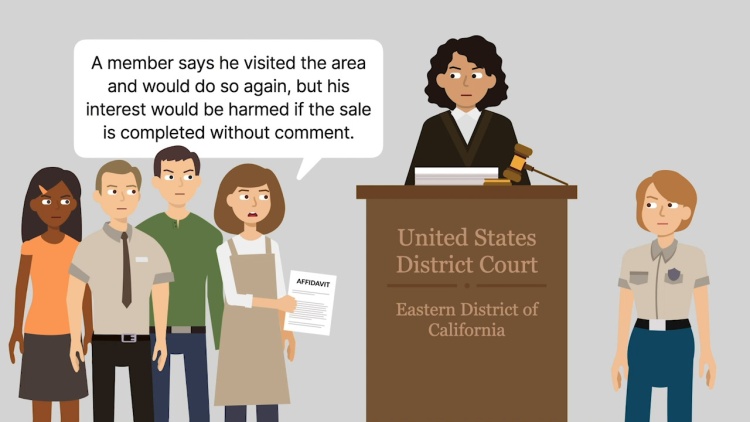Summers v. Earth Island Institute
United States Supreme Court
555 U.S. 488, 129 S.Ct. 1142, 173 L.Ed.2d 1 (2009)
- Written by Susie Cowen, JD
Facts
The Forest Service Decisionmaking and Appeals Reform Act (Act) required the United States Forest Service (USFS) (defendant) to establish a notice, comment, and appeal process for proposed USFS actions implementing certain land and resource management plans. USFS later promulgated a regulation that exempted small fire-rehabilitation and timber-salvage projects from the notice, comment, and appeal process that the agency used for more significant land management decisions. In 2002, a fire burned a significant portion of the Sequoia National Forest. USFS later issued a decision memo approving the Burnt Ridge Project, a salvage sale of timber on 238 acres damaged by the fire. Based on its categorical exclusion of salvage sales of less than 250 acres, USFS did not provide any notice, period for public comment, or appeals process. A group of organizations dedicated to protecting the environment (plaintiffs) challenged USFS’s failure to apply the Act’s requirements to the Burnt Ridge Project. A federal district court granted a preliminary injunction against the salvage-timber sale, and the parties settled their dispute over the Burnt Ridge Project. The plaintiffs then sought to prevent USFS from again enforcing its regulation excepting certain projects from the Act’s procedural requirements. The district court adjudicated the merits of the plaintiffs’ challenge, and the court of appeals affirmed. The United States Supreme Court granted certiorari on the issue of standing.
Rule of Law
Issue
Holding and Reasoning (Scalia, J.)
Concurrence (Kennedy, J.)
Dissent (Breyer, J.)
What to do next…
Here's why 907,000 law students have relied on our case briefs:
- Written by law professors and practitioners, not other law students. 47,100 briefs, keyed to 996 casebooks. Top-notch customer support.
- The right amount of information, includes the facts, issues, rule of law, holding and reasoning, and any concurrences and dissents.
- Access in your classes, works on your mobile and tablet. Massive library of related video lessons and high quality multiple-choice questions.
- Easy to use, uniform format for every case brief. Written in plain English, not in legalese. Our briefs summarize and simplify; they don’t just repeat the court’s language.





